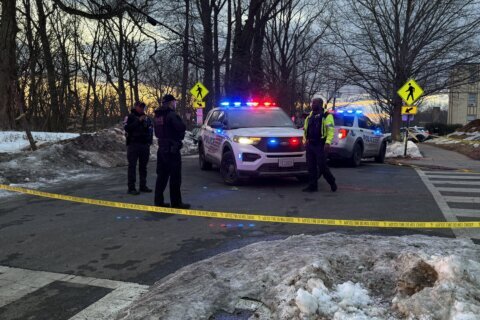More than 27% of all students in D.C. are missing routine childhood immunizations, according to data from the District of Columbia.
The COVID-19 pandemic prompted a drop in the number of “well child visits” to doctors, which has caused nearly 28,000 students in D.C.’s public, public charter, parochial, and independent schools to fall behind in routine vaccinations against several illnesses, including measles and whooping cough.
The District’s compliance rate of 73% on childhood vaccines is far below the national average of 93%, according to the Centers for Disease Control and Prevention.
Council Chairman Phil Mendelson held a public roundtable on the District’s “No shots, no school” policy for the upcoming school year.
According to D.C. law, no student will be admitted to school unless the school has received certification of the student’s immunizations, or approved exemptions for required illnesses, including for COVID-19.
D.C. has stated it will enforce the law, which says students will be removed if their immunizations cannot be verified.
The chairman’s roundtable sought to get an update from involved and interested agencies and interest groups, on progress being made to enable students to be immunized before the start of the school year.
Despite efforts from health, school and other agencies to increase immunizations, Mendelson said not enough is being done. “The statistics you put out were 73% of kids are vaccinated, so most kids are vaccinated — this hearing is not about the ‘most,’ this hearing is about the 27% who are not.”
Health and school officials are reaching out to families with children who are behind on their immunizations.
Starting in August, mobile units will offer immunizations near schools, rec centers, COVID-19 centers and other community locations in all of the District’s eight wards.
“We want to make it so easy for folks to get their shots that they don’t have to go anywhere,” said Mendelson. “Wherever they are, they can get their shots.”
Mendelson said school nurses should be allowed to administer vaccines. During the roundtable, a health department official described logistical challenges — including stocking and storing a wide variety of vaccines.
“The Department of Health has got to figure out how to get vaccines into the schools, and make this so easy that’s there’s just no barrier for a kid to get vaccinated, in terms of school nurses,” Mendelson mused.
Liv Birnstad, one of the student representatives on D.C.’s State Board of Education, said the District wasn’t doing enough to encourage student buy-in for vaccines, including for COVID-19.
“If students don’t believe in the efficacy of the vaccine for themselves, they’re not going to want to get it,” said Birnstad, adding that the message should be shared in a more relatable way. “If you’re in school for eight hours, and then someone tells you something with extremely scientific language, or that’s extremely data-heavy, it’s super-easy to disengage from that.”








